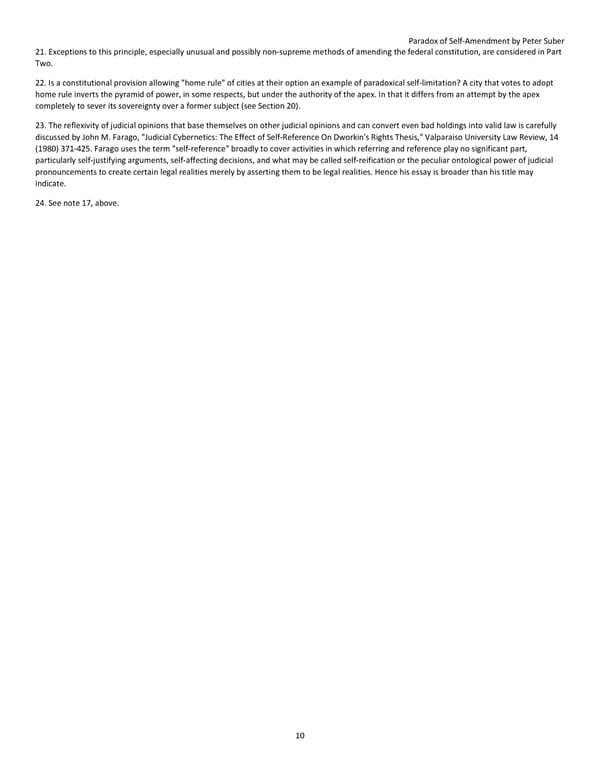Paradox of Self-Amendment by Peter Suber 21. Exceptions to this principle, especially unusual and possibly non-supreme methods of amending the federal constitution, are considered in Part Two. 22. Is a constitutional provision allowing "home rule" of cities at their option an example of paradoxical self-limitation? A city that votes to adopt home rule inverts the pyramid of power, in some respects, but under the authority of the apex. In that it differs from an attempt by the apex completely to sever its sovereignty over a former subject (see Section 20). 23. The reflexivity of judicial opinions that base themselves on other judicial opinions and can convert even bad holdings into valid law is carefully discussed by John M. Farago, "Judicial Cybernetics: The Effect of Self-Reference On Dworkin's Rights Thesis," Valparaiso University Law Review, 14 (1980) 371-425. Farago uses the term "self-reference" broadly to cover activities in which referring and reference play no significant part, particularly self-justifying arguments, self-affecting decisions, and what may be called self-reification or the peculiar ontological power of judicial pronouncements to create certain legal realities merely by asserting them to be legal realities. Hence his essay is broader than his title may indicate. 24. See note 17, above. 10
 The Paradox of Self-Amendment Page 22 Page 24
The Paradox of Self-Amendment Page 22 Page 24